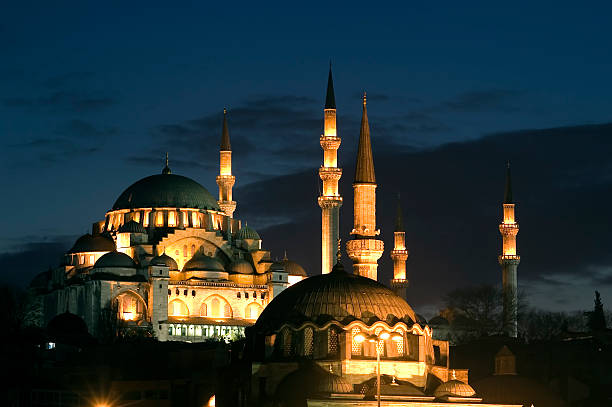My best friend was a soldier. She didn’t wear camo or combat boots, nor was a gun strapped to her shoulder. But her feet spoke more than her eyes. And her smile I always found a tale unworthy of disguise. On Fridays, she would trek miles to mine, before clasping my hand in hers and grinning. When I asked why not move closer to the masjid, she would only chuckle before shaking her head and walking. She’d step inside with her right foot and recite a supplication I didn’t know.
Peace be upon the Messenger of Allah. O Allah, Open for me the gates of your Mercy.
And to every passerby, young, old, familiar or not, she’d say salam with a smile that could light up city skylines. Before the imam would start, she’d hurry up the stairs and offer two nawafil before a tiny crease would mar her forehead as she mumbled prayers and counted dhikrs on her fingers. She’d stare at the neon board displaying prayer times in flickering lights in need of repair before beckoning for me to sit down with her. Shoulder-to-shoulder we’d stand and recite our prayers in a quiet room bathed in sunlight around which rows upon rows of intricate Quranic calligraphy were drawn and against which endless shelves of Qurans and fiqh textbooks were stacked.
When I’d ask why she wouldn’t pray nafl afterwards, she would smile and hike a thumb over her shoulder, whispering that she could pray at home instead. While we would sit and make dua for the best of this world and the next, a child would tiptoe behind her and jump onto her back before wrapping his arms around her neck and giggling, and she’d turn around and laugh too, fishing a lollipop out of her pocket and giving it to the star-eyed toddler. Before we left, she’d always tell me to go ahead so she could make a quick trip to the bathroom. I’d watch as she’d step outside the masjid with her left foot, reciting
“Peace be upon the Messenger of Allah. O Allah, I ask You from Your favor.”
On a walk back home one day, I asked her what she wanted most. She didn’t hesitate before answering “Jannah.” I nodded, but not before asking if she wanted anything tangible, to which she replied, “a house in Jannah.”
These days, when I walk to the masjid alone, I think about her a lot. I think about her bruised feet, her tattered clothes, her barren house, and its broken pipes. I think about the nawafil she prayed before every salah. Most of all, I think about the things I came to know of in her absence. Abu Qatadah, a companion of the Prophet, reported that the Prophet (peace be upon him) said, “When any one of you enters the mosque, he should observe two rak’ahs (of nafl prayer) before sitting.” Abu Musa reported that the Messenger of Allah (peace be upon him) said, “The person who will receive the highest reward for salat is the one who comes to perform it in the mosque from the farthest distance. And he who waits for salah to perform it with the Imam (in congregation) will have a greater reward than the one who observes it alone and then goes to sleep.” Zaid bin Thabit reported that the Prophet said, “O people! Perform your voluntary salah in your homes because the best salah of a man is the one he performs at home, except the obligatory salah.”
And finally, Abu Hurairah narrated that the Prophet (peace be upon him) said, “Shall I tell you that for which Allah will wipe out your sins, and raise your ranks?” They said, “Of course Allah’s Messenger!” His companions said: “Performing wudu well in difficulty, and taking many steps to the Masajid, and waiting for salat after salat. That is the ribat.”
Ribat, I learned, was getting the reward of a soldier standing on a frontier.
The lights of the prayer times board don’t flicker anymore. A box of candy sits at the back of the prayer room. But when the young children smile, it doesn’t reach their eyes. The sadaqah box, I never realized, is adjacent to the restrooms.
My best friend was a soldier. And I smile, knowing a house awaits her in Jannah.

